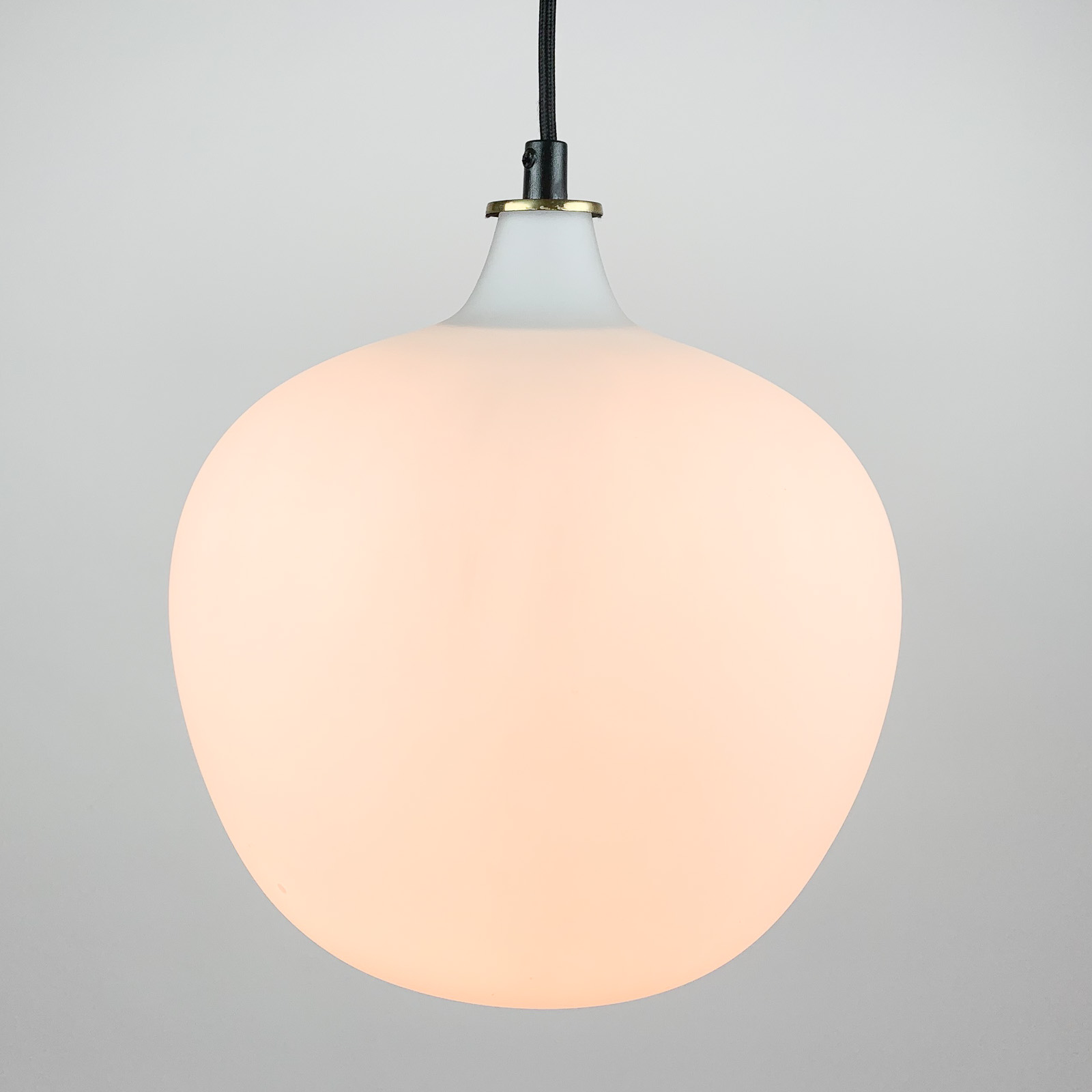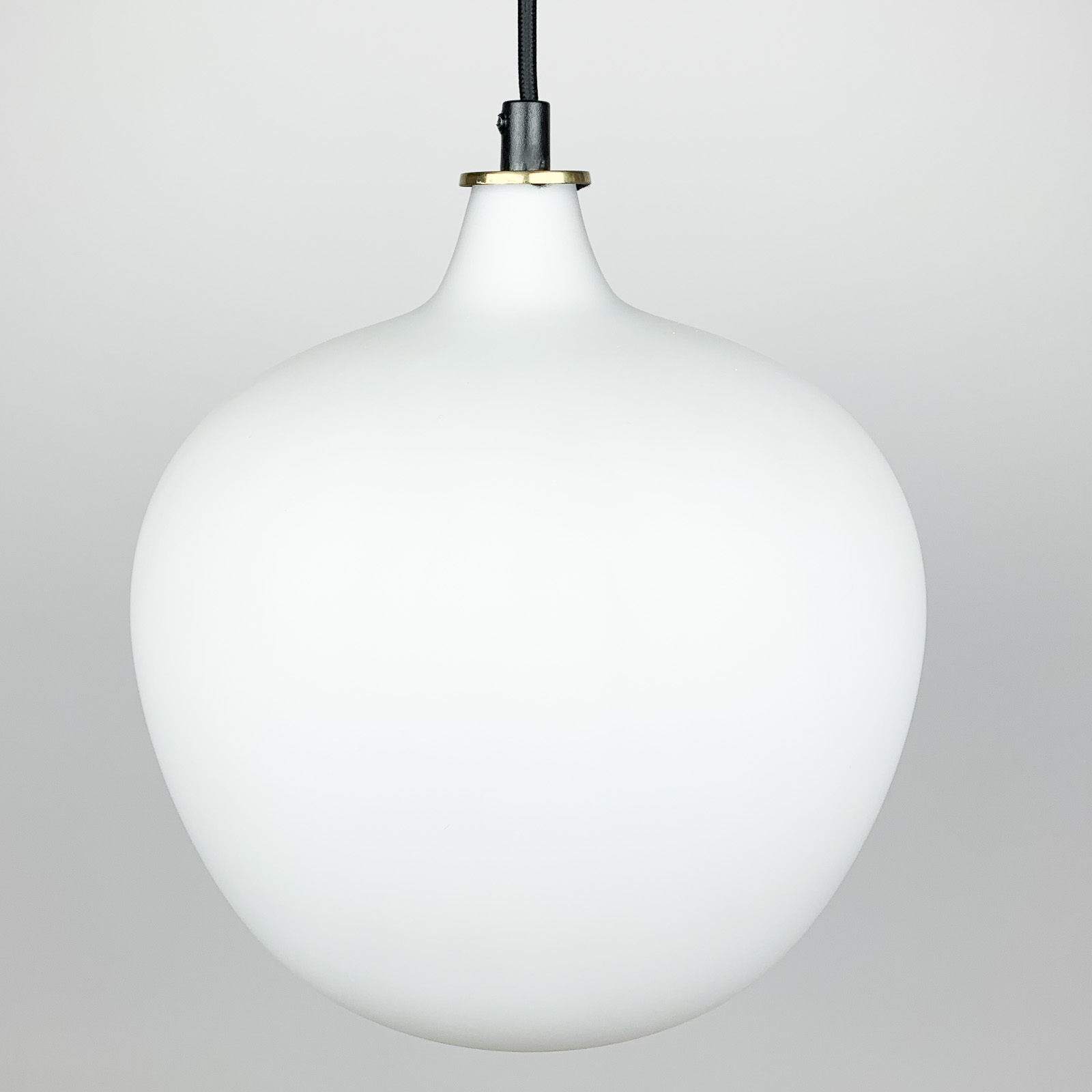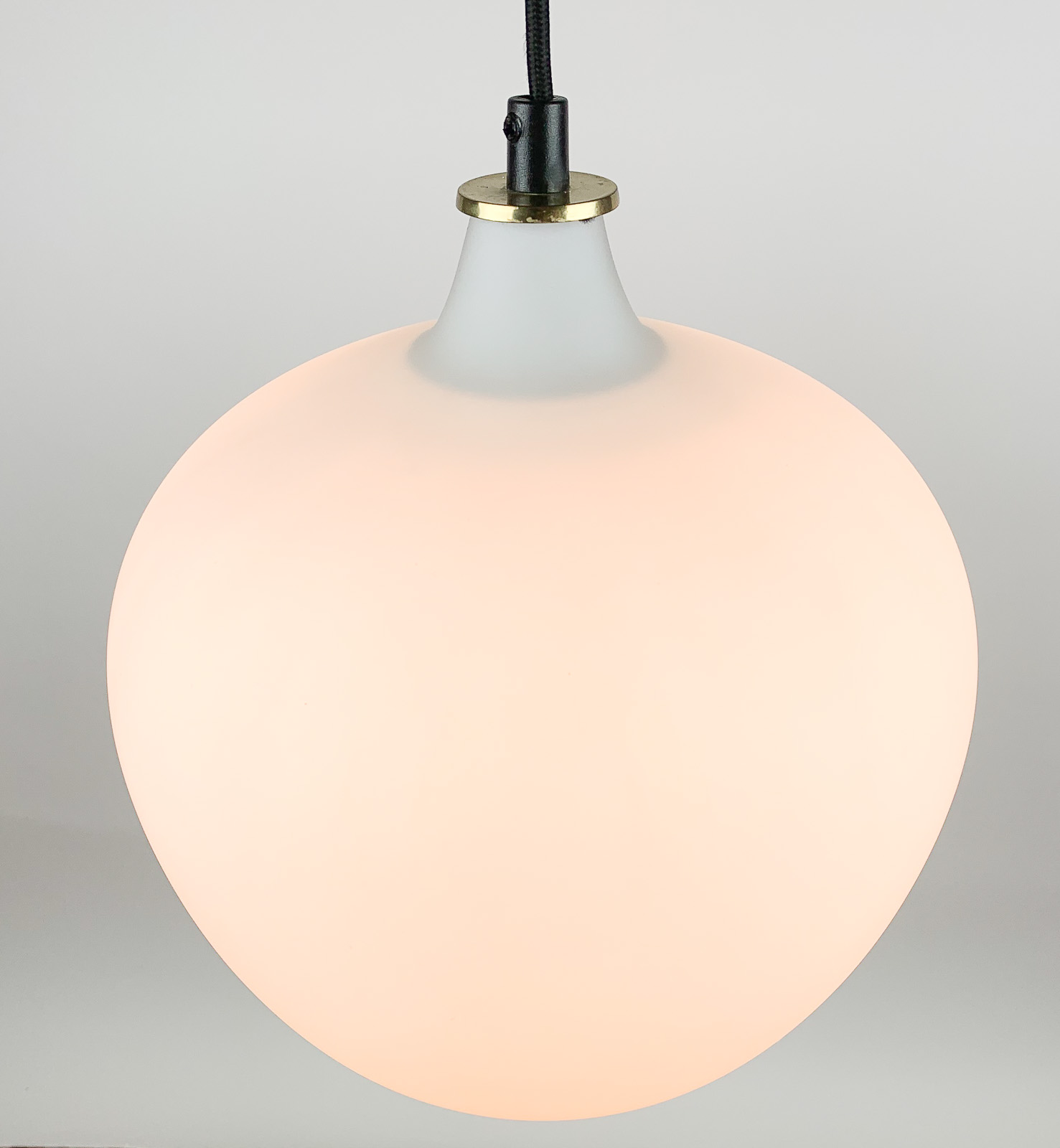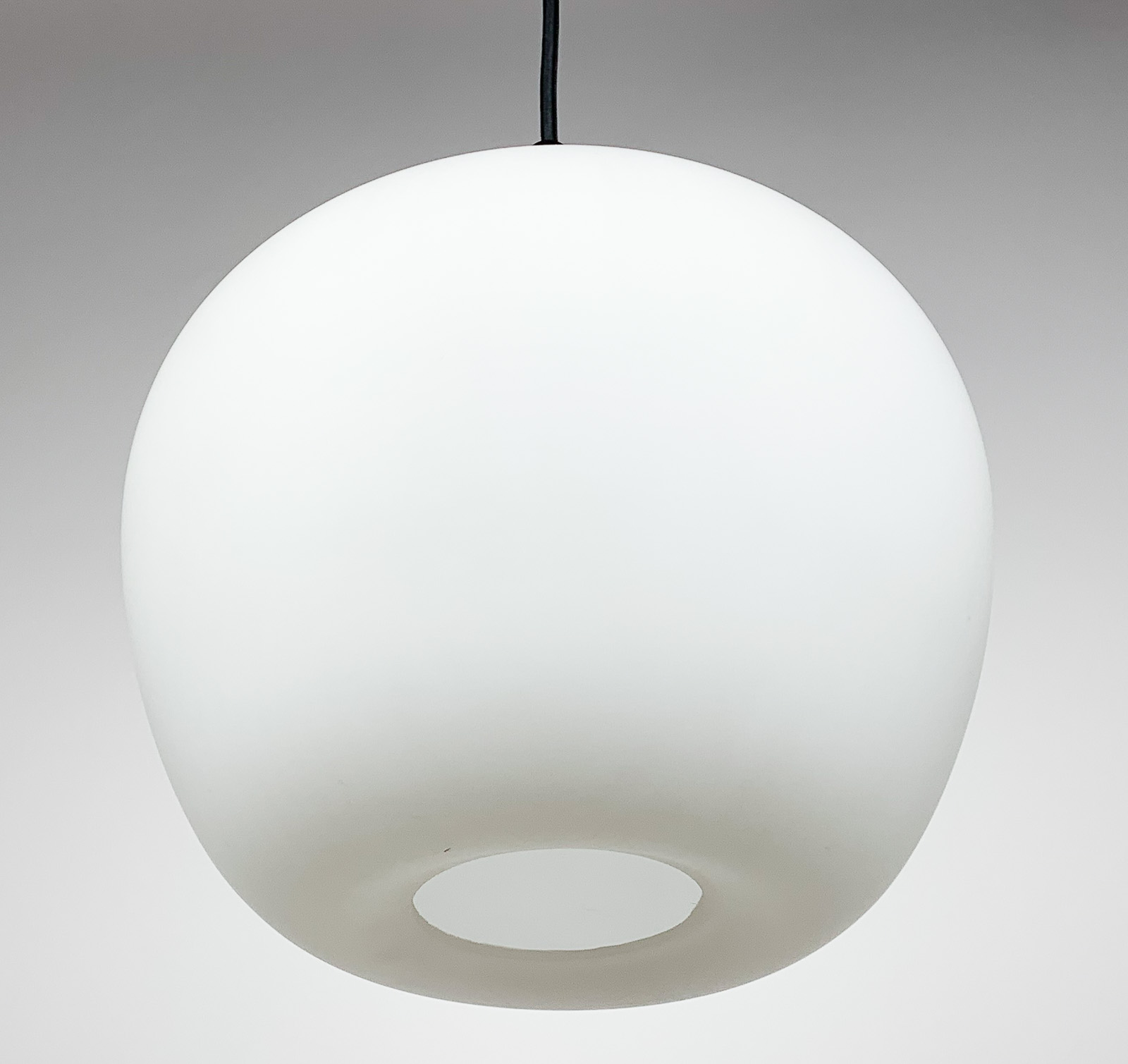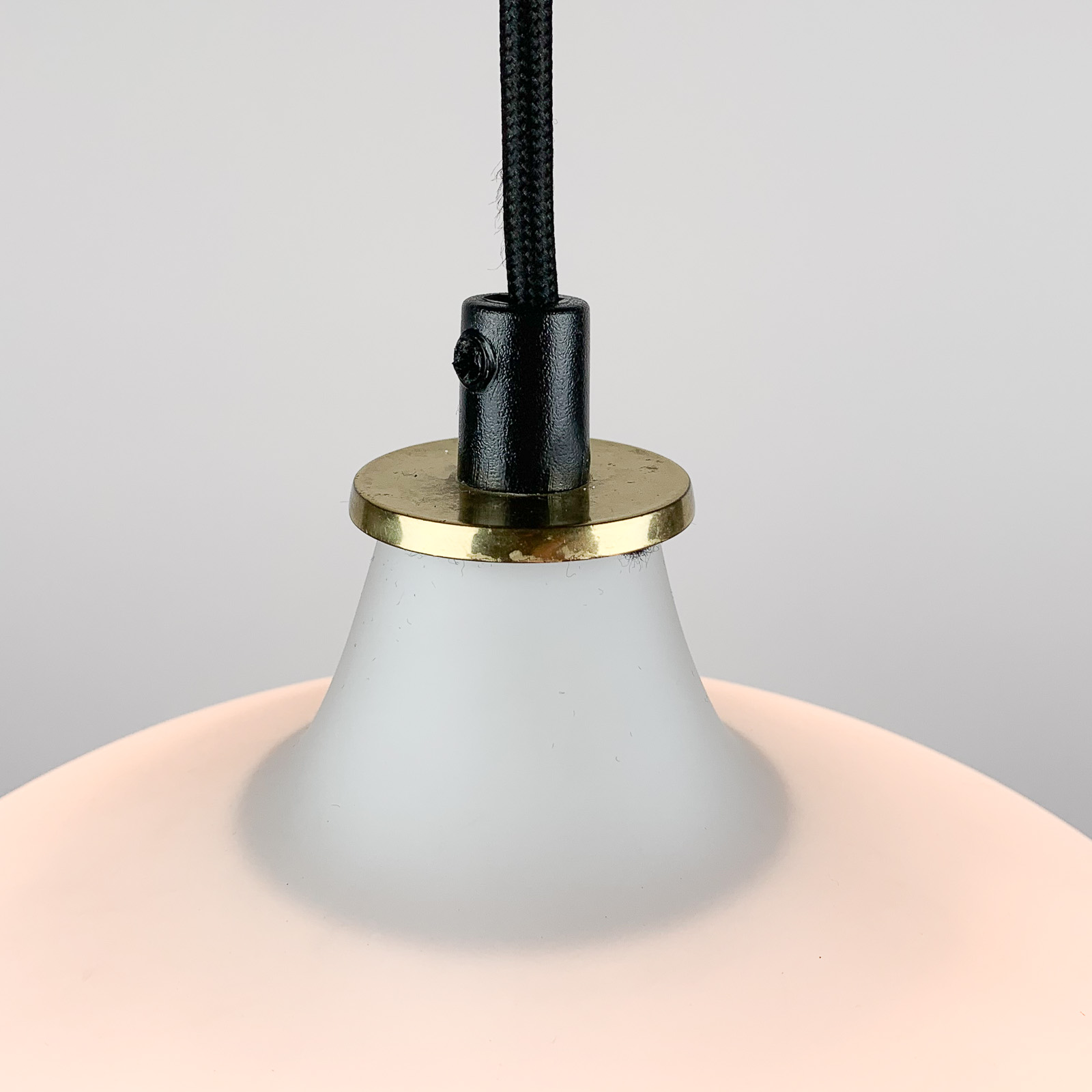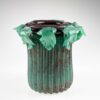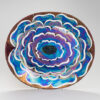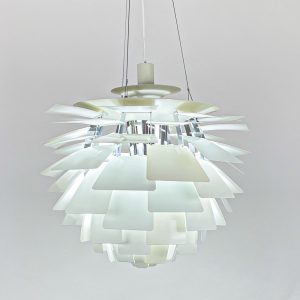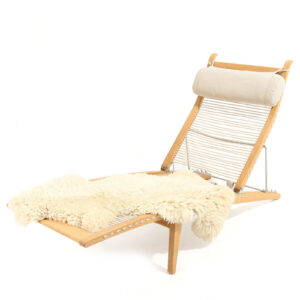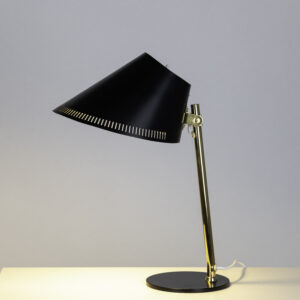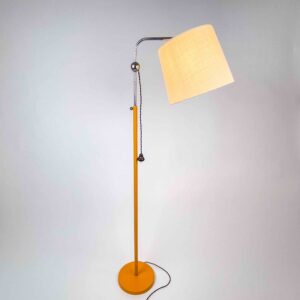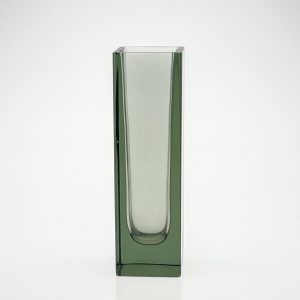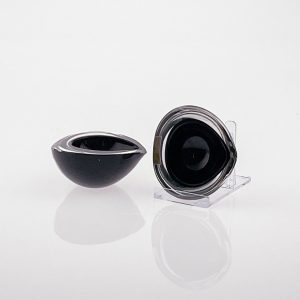| Marked | unmarked but well documented |
|---|---|
| Execution | Idman in collaboration with Iittala – late 1960's |
| Condition | The pendant is in good vintage condition. No chips or cracks in the shade. Some scratches on the brass ring. We replaced the wiring and the bulb-socket, for safety reasons. The original wire was damaged and the original socket was riveted to the wire. If so desirable we can supply these parts. |
| Literature | Marianne Aav, Tapio Wirkkala eye, hand and thought: p. 273 (illustrated), p. 382 |
| Dimensions | Height 28 cm |
- Dit product kan niet worden gekocht.
Tapio Wirkkala – A satin finished, opalescent glass pendant – Idman / Iittala Finland 1960’s
SOLD
Uitverkocht
A pendant / hanging lamp, model 51129. Designed by Tapio Wirkkala in 1958 and executed by Idman in collaboration with Iittala.
The satin finished, opalescent glass lampshade was made by this famous Finish glassworks. The shade is crowned with a brass plate on top. This particular pendant was most likely produced in the late 1960’s.
Supplied with the pendant is a hard-plastic white ceiling rose. It matches the pendant very well but we did not find any decisive proof that this ceiling rose was originally supplied with the pendant. On the top of the ceiling rose and inside are some paint stains that we were unable to remove, they are white paint so not higly visible at a distance.
About Tapio Wirkkala
Tapio Wirkkala (1915 Hanko, Finland – 1985 Helsinki, Finland) A giant of Finnish design, Wirkkala was an artist of great diversity for whom no material was alien and who left no area of design unexplored. Neosin Neosin
A glass design competition held by the Iittala glassworks in 1946 was the event that set his career in motion; the first prize went jointly to Wirkkala and Kaj Franck.
With an oeuvre that ranges from exceptionally beautiful pieces of glass art to industrial design in the form of beer bottles and banknotes, Wirkkala also designed jewellery, sculptures, and furniture.
The recipient of many awards, honorary titles, and a doctorate, Wirkkala won three Grand Prix medals at the Milan Triennale in 1954 and an additional Grand Prix medal and gold medal at the Milan Triennale in 1960.


